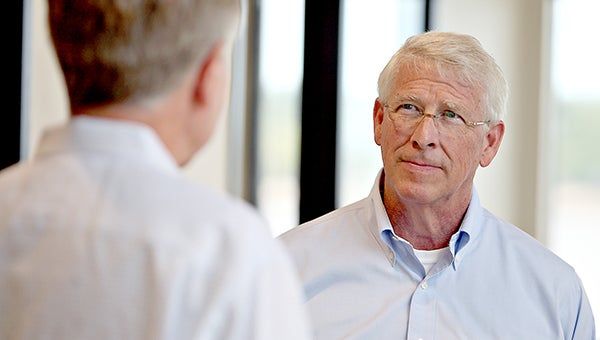Wicker: Time to remove obstacles to intercountry adoption
Published 2:04 pm Friday, October 9, 2020

- U.S. Sen. Roger Wicker
I am fortunate to have grown up in a home with two loving parents. They gave me the care, stability, and training I needed to succeed. But not every child is so fortunate. Across our country, and especially abroad, there are countless children who have no mom, no dad, no family, and no relatives to take them in and care for them. These children often reside in deplorable conditions, in orphanages, and as wards of the state.
Americans have always had a heart for these children. For decades, Americans have led the world in welcoming orphans from abroad into a forever family. As a result, there are more than 150,000 children adopted from foreign countries growing up in America today. These children and their adoptive families are examples of America at its best. Some of them are now part of my extended family; others go to church with Gayle and me.
Unfortunately, this great legacy of compassion is at risk. U.S. adoptions from foreign countries have sharply declined in recent years.
In 2004, Americans adopted 23,000 children from foreign countries. Last year, that number fell below 3,000 — an 87 percent drop over 15 years. One reason for the decline is that some countries, like Russia, have shut their doors to adoptive parents. But the most troubling cause of the decline comes from within our own government.
State Department is biased against adoption
For years, the U.S. State Department and its adoption accrediting entity have been hostile to intercountry adoption. They have obstructed the adoption process with fees and red tape. And they have put crushing regulations on adoption-providing agencies, making it almost impossible to stay in business. The result has been devastating. Over the last year and a half, more than 30 adoption agencies have stopped providing intercountry adoptions, and some have had to shut down completely. Tragically, this means more orphans each year will remain in institutions rather than with a loving family.
These troubling developments can be traced to the State Department’s Office of Children’s Issues. This office was created by Congress to promote international adoption, but under misguided leadership, it is doing the exact opposite. In 2018, for example, it directly intervened to prevent three well-respected adoption agencies from having their accreditation renewed. In 2019, it issued a public letter threatening the future of intercountry adoption. It even hosted a public forum last year that featured radically anti-adoption speakers.
The Office of Children’s Issues has managed to fly under the radar for years. I have raised my concerns with Secretary of State Mike Pompeo, and I hope he will take a close look at what has happened and restore this office to its pro-adoption mission. These bureaucrats need to be held accountable to the American people.
Congress works to restore intercountry adoption
In recent weeks, I have called on the Senate to investigate the Office of Children’s Issues and hold hearings to expose their misuse of authority. In addition, I have co-sponsored legislation requiring the State Department to give an account for their actions and explain how they are working to make intercountry adoption more feasible. The bill would also help prospective parents get the information they need to pursue adoption abroad. This legislation has passed the House and Senate unanimously and now awaits the President’s signature.
It is a shame that federal bureaucrats have gotten in the way of thousands of American families who are seeking to adopt. Their actions are out of step with congressional intent, American values, and basic morality.
I am committed to making sure the government respects our great tradition of adoption and makes it easier, not harder, to welcome children in need.





